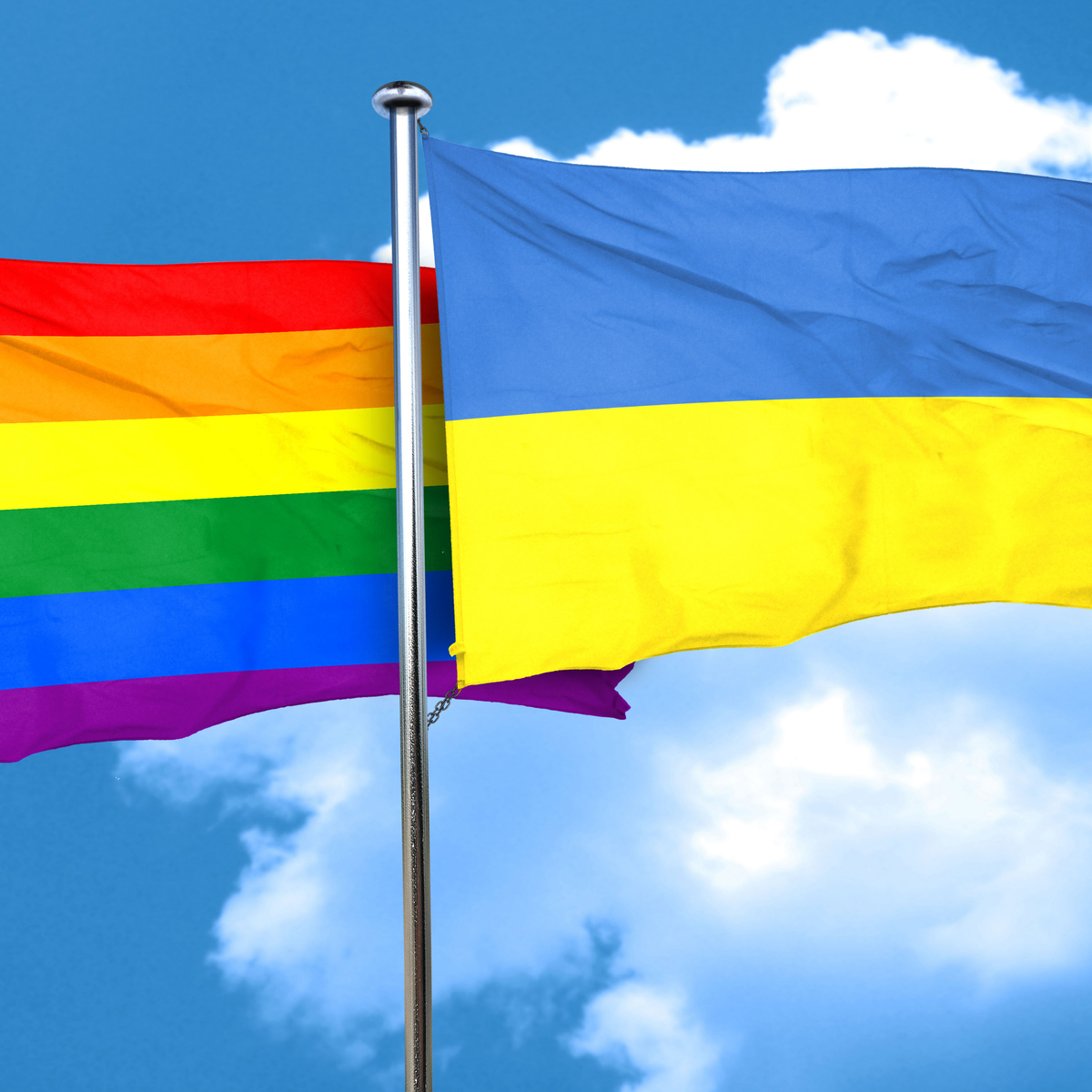In the last year, Ukraine’s society has shifted its perspective on the LGBTI community. While LGBTI activists worked to resist the imposition of conservative Russian attitudes, LGBTI communities advanced their rights in multiple ways. In May of 2022, “Nash Svit,” a Ukrainian LGBTI organization, conducted a study finding that 64% of Ukrainians support providing equal rights to the LGBTI community. This study indicates a considerable jump, as this percentage also includes those who previously had negative views towards this community. Another study, showcased by the social media group “LGBTIQ Military,” stated that there are more self-identified LGBTI members in the armed forces of Ukraine than ever before as they have gained more acceptance among the armed forces. In addition, new legislation has been introduced, such as partnership rights for same-sex couples and the prohibition against anti-LGBTI hate speech.
Anastasia Adriivna, a school teacher, was inspired by opposite-sex couples rushing to get married before joining the fight to launch her campaign for same-sex marriage. Her petition gained over 25,000 signatures, and under Ukrainian law, the president must formally respond to any petition with this many signatures. However, the president argued that this would require a constitutional change which was impossible due to current martial law. Therefore, despite the public support of the LGBTI community advancing, there is still work to be done to make these rights recognized under the law.
This setback is no surprise, as the LGBTI community has demonstrated their commitment to pushing for democracy, despite the pushback they have received in the last decade. However, it is also clear that they have seen a significant jump in public support within the previous year.
One of the many characteristics of a nation going to war is that its social norms shift and the conventional expectations of the government and public lessen. This is the same for Ukraine. Often, marginalized communities are mobilized by their nation during a time of chaos. For some groups, this dramatic change provides a gain, while others return to their marginalized status afterward.
An example is Britain granting women the right to vote after World War I. On the contrary, African American troops returned from both wars to continue facing racial discrimination under the Jim Crow Era. Therefore, some times of chaos may bring many benefits, such as the increased support of the LGBTI community in Ukraine; however, there is still the need to expand that support into permanent laws.
The LGBTI community in Ukraine is gaining support, as the efforts of many activists have made tremendous progress in the past decade. However, although accepting the LGBTI community by the Ukraine public is a huge step, it does not guarantee the community full access to resources and protection against all forms of hate and discrimination.
Therefore, it is vital to utilize this time and increased support to push on the Ukraine government and lawmakers. Even though the LGBTI community is on a great wave, it is essential to know that the goal isn’t just to gain public approval but to make legal changes that protect the entire spectrum of the LGBTI community permanently.

